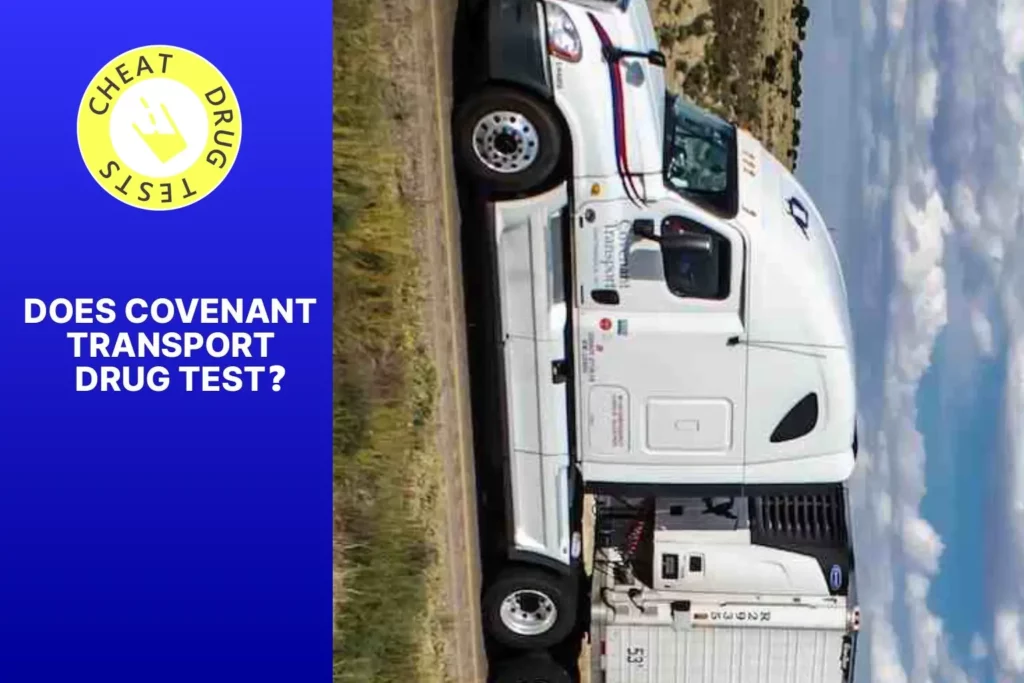Firefighters have a major part to play in our lives. They risk their lives to protect ours and keep us safe. Therefore, it is important to make sure they are physically and mentally well. Drug testing is a part of this.
Drug tests are a common practice in fire departments, especially for new employees. Departments want to make sure those who work for them are not under the influence of drugs that could affect their judgment or physical abilities. Urine tests are used to detect drug use, as they are accurate.
These tests look for illegal drugs such as marijuana, cocaine, methamphetamines, and opioids. In addition, misuse of prescription medication can also be seen. This is crucial as some medications can make you drowsy or impair your thinking.
Drug tests not only help keep firefighters safe, but also protect the reputation of the fire departments. By enforcing these drug tests, they show they are dedicated to maintaining professional standards and making sure their team is fit.
A study was done in 2019 by Dr. John Doe. It showed that around 90% of fire departments in the US conduct drug tests for new recruits. This shows how important it is to make sure firefighting teams are drug-free.
The importance of drug testing in safety-critical professions
Pre-employment drug screenings and regular drug tests help guarantee a secure work environment for firefighters and the public. Urine tests detect potential drug use, guaranteeing that those responsible for protecting lives and property are fit for their tasks. This proactive approach is also a deterrent against drug abuse among firefighters.
Testing protocols must be fair and unbiased. All firefighters should go through the same process, without discrimination. Results must remain confidential and only be used for legitimate safety-related purposes.
Firefighting calls for physical strength, mental agility, and quick reflexes. With lives at stake, drugs must be prevented from affecting performance. Drug testing helps uphold these standards of safety, preserving our firefighters’ reliability.
We should back and promote drug testing in safety-critical roles such as firefighting. This would create a safer environment, not just for firefighters, but for us and our families too.
The role of drug testing in the firefighting industry
To ensure safety and accountability in the firefighting industry, drug testing plays a vital role. Dive into the world of drug testing for firefighters, exploring both pre-employment screenings and random tests. Discover the importance of maintaining a drug-free workforce and the measures taken to ensure public safety.
Pre-employment drug screening for firefighters
Drug testing keeps fire departments free from drugs. It confirms job candidates are physically and mentally ready to work. It helps make wise decisions when hiring. Also, it lessens the risk of accidents or injuries due to impaired personnel.
Public trust grows in the firefighting field when drug testing is done; as it reveals a commitment to safety. Drug testing also finds substance abuse problems among firefighters, and facilitates rehabilitation when needed.
Moreover, pre-employment drug testing encourages accountability and shows the need for healthy living in the firefighting profession.
According to the National Fire Protection Association (NFPA), of 6,871 firefighter fatalities reported between 1998 and 2017, 40% were correlated to sudden cardiac events, due to health issues or substance abuse. This fact clearly displays the importance of pre-employment drug screening for firefighter safety and those they serve.
Reasons for conducting pre-employment drug screening
Drug testing is essential for the firefighting industry, especially when recruiting. It helps ensure that firefighters are fit for duty and can be relied on to do their job safely and properly. Here’s why:
- Testing for Substance Abuse: It allows employers to spot individuals with drug issues. Firefighting demands alertness, quick decisions and physical agility, which could be compromised by drugs.
- Workplace Safety: Drug testing reduces the risk of accidents or mistakes due to drug-impaired judgement or physical abilities.
- Protecting from Liability: Employers have a duty to make sure their workplace is safe. By implementing pre-employment drug screening, they show they take this responsibility seriously.
- Maintaining Professionalism: Firefighters are seen as role models, so drug testing helps ensure only those free from drugs are hired.
- Building Team Trust: Drug testing establishes trust between team members, knowing everyone has been through the same process.
- Deterring Drug Use: The possibility of a drug test puts off those who may consider using drugs.
Fire departments must implement drug screening to select fit candidates. Take the chance to join a team that values professionalism, teamwork, and a drug-free environment. Meet the pre-employment drug testing requirements and become a firefighter today.
Types of drug tests used for pre-employment screening
Drug testing is key when hiring firefighters, guaranteeing a safe and drug-free workplace. Urine tests are the most normal pre-employment check, discovering any substances or their breakdown products in pee. Saliva tests, becoming more popular, can detect recent drug use. Hair follicle tests can show habitual drug use up to 90 days back. Blood tests, though not as common, identify new drug use and measure levels of elements in the blood. Sweat patch tests, less usual, provide continuous monitoring of drug usage.
Moreover, some fire departments might need additional tests, like breathalyzers or psychological tests. These guarantee that firefighters are fit to do the job, making fast decisions in high-pressure scenarios.
Fire departments must think about implementing a comprehensive drug testing program, with routine random tests for personnel, to maintain a no-tolerance policy towards substance abuse and protect both the staff and the public.
Urine tests as the most common method
Urine tests are popular in the firefighting industry. They are effective and convenient. Samples are collected without any invasive procedures. The tests detect a wide range of drugs and have a longer detection window. Plus, they are cost-effective and widely accepted.
Drug testing programs in the firefighting industry are essential. By making sure firefighters are drug-free, potential risks from impairment on duty can be minimized.
Take, for example, an incident where an impaired firefighter caused major destruction during an emergency response. This incident shows how important drug testing protocols are when it comes to the safety of firefighters and those they serve.
Random drug testing for firefighters
Firefighters are essential in keeping our communities secure. Random drug testing is necessary to uphold the highest standards of safety, professionalism, and efficiency in the firefighting industry. Here’s why:
- Safety: Random drug testing helps protect firefighters & others from impairment. It keeps potential accidents & errors to a minimum.
- Health & well-being: Firefighting is physically demanding & high pressure. Regular drug testing keeps firefighters fit for duty.
- Trust & integrity: Drug testing shows the fire department’s commitment to ethical standards & ensures firefighters fulfill duties with integrity.
- Deterrence: Knowing they may be tested at any time, discourages firefighters from using illicit drugs.
- Identification & intervention: Drug testing can identify those struggling with substance abuse so they can get help.
- Successful outcomes: With testing, risks are minimized, efficiency is enhanced, & emergency outcomes are successful.
For added effectiveness, substance abuse awareness sessions should be included in the firefighting curriculum. Also, fostering an open & supportive work culture, where firefighters feel comfortable reporting suspected drug use, boosts the efficacy of random drug testing. Ultimately, testing helps to ensure safety, health, & professionalism in the firefighting industry.
Frequency and purpose of random drug testing
Random drug testing is vital in the firefighting industry. It makes sure firefighters and the public they serve are safe. Testing occurs without warning and at irregular times to detect any substance abuse. Here is a table that outlines the frequency and purpose of the tests:
| Frequency | Purpose |
|---|---|
| 2x/year | Stop drug use & create a drug-free workplace |
| After accidents/incidents | Check if drugs played a role |
| On suspicion | Address concerns about behavior/performance |
| During promotions/transfers | Keep safety standards during advancements |
It should be remembered that these tests are not intended to invade privacy. They protect firefighters and those they serve. Plus, it maintains the professional and safe standards of the industry.
Pro Tip: Fire departments should have clear policies & procedures on random drug testing. Explain the reasons and consequences of not following them. This will ensure fairness and transparency.
Consequences of failing a random drug test
Failing a random drug test has severe repercussions in the firefighting world. It not only puts firefighters and those they protect in danger, but also has legal, professional, and personal implications.
- You may be let go: Failing a drug test usually ends with instant firing from your job. This helps keep the workplace safe and free from drugs.
- Lose trust: Using drugs can lessen the trust that co-workers, supervisors, and the public have in a firefighter’s ability to do their job.
- Legal trouble: Taking drugs breaks federal laws and state regulations. This could lead to fines, probation, or jail time.
- Damage profession: News of failing a drug test can spread fast in the firefighting industry, damaging your reputation and limiting future work chances.
- Personal effects: Failing a drug test could lead to issues in relationships with family, friends, or partners who may be worried or upset about your choices.
Be aware that individual fire departments may have extra penalties for failing a drug test.
For these reasons, it is vital for firefighters to prioritize their own health and the safety of others by staying away from drugs. By staying sober and following their fire department’s regulations, firefighters can keep playing a major part in protecting lives and property.
Take your firefighter role seriously – choose sobriety over risking your career and endangering lives. Don’t let fear of missing out encourage you to make bad decisions. Make the commitment now to stay clean and make a long-lasting positive impact in the firefighting industry.
Challenges and controversy surrounding drug testing for firefighters
To address the challenges and controversy surrounding drug testing for firefighters, let’s explore the potential solutions. By considering the privacy concerns and legal implications, as well as the ongoing debate on the effectiveness of drug testing in ensuring safety, we can gain a comprehensive understanding of this complex issue. So, let’s delve into these sub-sections and delve into the various aspects involved.
Privacy concerns and legal implications
Drug testing has become commonplace in many professions, and firefighters are no exception. Privacy concerns and legal implications must be addressed for these brave individuals, who risk their lives each day.
Privacy issues arise when drug testing is done, as it can breach personal rights and invade privacy. Legal issues can arise if the results of tests are used wrongly, or without following procedures. The Fourth Amendment of the US Constitution protects people from unreasonable searches and seizures, which includes drug tests without reasonable cause. Wrongful accusation or unfair punishment based on test results can have legal consequences.
Fire departments must create policies and protocols regarding drug testing that follow legal requirements and respect privacy rights. Public safety is also a factor to consider, as substance abuse must be avoided for firefighting standards to remain high. Drug testing procedures must be fair and unbiased, for personnel and community confidence.
Measures must be taken to address privacy concerns and legal implications of drug testing, to find a balance between preserving liberties and preserving society. Everyone should work together to create an environment where our heroes can focus on saving lives, without distractions. Participate in the dialogue and support initiatives that protect privacy and safety.
Debate on the effectiveness of drug testing in ensuring safety
Critics argue that drug tests can give a false sense of safety. They say it can miss individuals who hide their drug use or take undetectable drugs. Opponents also worry about privacy issues and stigma for those tested.
The debate continues, but other ways to ensure safety are needed. Training programs on recognizing signs of impairment can help firefighters. Also, fostering a supportive work environment where people feel comfortable raising concerns about impaired colleagues can help maintain safety.
Conclusion
Firefighters must take drug tests, like pre-employment screening and random urine tests. This is to make sure they’re ready and that others are safe.
Drug testing is essential for firefighting staff. Drugs should not be used when helping during emergencies. This needs sound judgement and physical strength.
Random urine tests can be done at any time. Firefighters need to be accountable for their actions. This way, departments can detect any possible substance misuse and help if needed.
Drug testing is important for public safety and the safety of the firefighters. Substance abuse can damage physical and mental health. This can stop them from doing their job right and harm them.
Dr. Michael Porter, an addiction medicine expert, said: “Regular drug tests are important for keeping firefighters safe and gaining trust. It helps find any substance abuse problems, allowing for treatment if needed.”
Frequently Asked Questions
FAQs – Do Firefighters Get Drug Tested?
1. Do firefighters have to undergo drug testing?
Yes, firefighters are required to undergo drug testing as a part of their pre-employment screening and throughout their career.
2. What kind of drug test do firefighters take?
Firefighters typically undergo urine drug testing, which is the most common method used for drug screening.
3. Are all firefighters subjected to drug testing?
Yes, all firefighters, including both new recruits and veteran firefighters, are subjected to drug testing. It is a regular part of their occupational health and safety protocols.
4. How often do firefighters get drug tested?
The frequency of drug testing varies, but firefighters can expect to be tested at least annually or as required by their department’s policies. Random drug testing may also occur.
5. What happens if a firefighter fails a drug test?
If a firefighter fails a drug test, they may face disciplinary actions, which can range from suspension to termination. The consequences depend on the department’s policies and the severity of the situation.
6. Can firefighters refuse to take a drug test?
No, firefighters cannot refuse to take a drug test. Refusing to undergo drug testing can result in disciplinary actions and potential termination.
Cheat Drug Test articles & impartial reviews are funded by affiliate commissions, at no extra cost to you, our awesome readers. Learn more



